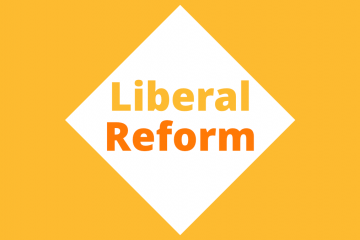http://iamlearningdisabled.com/tag/meetings by Robert Johnston, @robertj55
Information comes in many forms with various claims to ownership. The volume of data and the variety of contexts that transform it into information and knowledge has evolved beyond recognition since Hayek’s seminal work on “The use of knowledge in society”. However, the importance of the availability of knowledge to the individual, whether person or business, has, if anything, increased and reinforced Hayek’s point that free but informed decisions and economic effectiveness go hand in hand. It is therefore important for policy to address the ownership and access to information to tackle the ensuing asymmetries in decision making and power as exemplified by the energy market.
This topic relates to the important work done by Jo Swinson and Ed Davey during the Coalition to make getting a better utilities deal easier. The current energy market in the UK is a morass of poorly thought out regulation, awkward implementation and skewed market mechanisms. A move towards nationalisation is not the answer. The situation and elements of a solution have recently been set out clearly in a report sponsored by the Federation of Small Businesses. The report, “Open Energy: Using Data to create a smarter, cheaper and fairer energy market”, compiled by Fingleton Associates, covers the needs of individuals and service providers as well as businesses.
The diagnosis of the current malaise is that the market is complicated and unpleasant to interact with. It is rife with problems of overcharging and consumers being stuck on the most expensive, and certainly not the best, tariffs. The volume of information needed to determine the tariff rates means that the market suffers from information asymmetries that often prevent individuals and businesses from getting on the best deal and concentrates power with major incumbent suppliers.
The proposed solution is buy gabapentin illegally Open Energy. This would mean the government allowing businesses and domestic energy customers greater control over their energy data and easier access to tariffs available on the market by:
- Standardising tariffs and other relevant market information in machine-readable formats to allow automated comparisons of energy tariff offerings
- Making smart meter data available through a secure standardised Application Programming Interface (API) to approved third parties
- Allowing energy customers to delegate contract switching powers to third party intermediaries
These are smart recommendations. They use regulation to free the flow of information and provide standardisation that enables new intermediate services to flourish as well as to reduce barriers to entry for new suppliers and generators.
The major challenge is that to be effective the reforms need to be holistic and proportionate, covering regulation, standardisation, technology and the sustainability dynamic interaction between technology and all stakeholders. A key aspect will be to review the roll-out of smart meters that currently are too closely tied to incumbent suppliers. The smart meter provision needs decoupling from suppliers with ownership of energy data generated remaining with the individual while relevant aspects are made available to the supplier.
The challenges are addressable and this form of smart regulation and standardisation provides an example, with wider application, that enables the market to function to the benefit of the individual consumer and the environment. This provides a starting point for policy formulation that addresses market complexity and is distinctly Liberal.
Dr Robert Johnston is a Liberal Reform Board Member, member of the Association of Liberal Democrat Engineers and Scientists and Fellow of the Institute of Physics.
This post orginally appeared on Lib Dem Voice.


